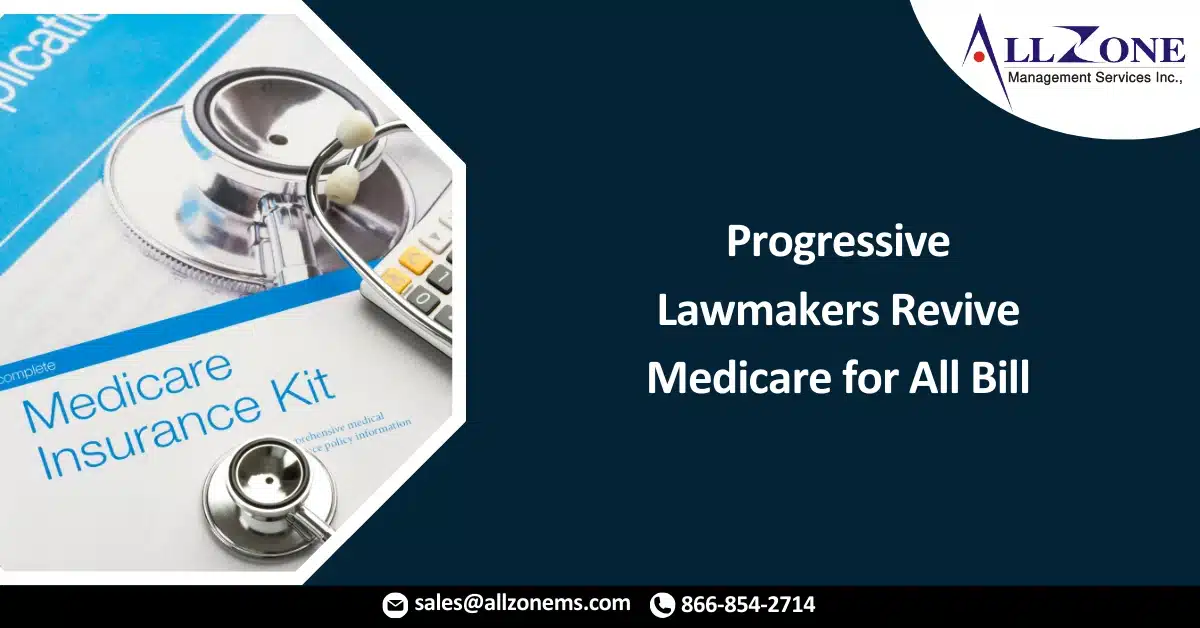Other progressive legislators from the House and Senate have brought back a Medicare for All bill. The proposed legislation aims to transition towards a single-payer health system by leveraging the existing federal program.
Representatives, along with a coalition of 14 senators and 110 House members. The lawmakers are motivated by the devastating impact of the COVID-19 pandemic, which they claim resulted in a significant number of deaths attributed to a lack of health insurance. Additionally, they express concern for the potential loss of Medicare coverage for around 15 million Americans this year.
The Impact of the Medicare for All Act:
The Medicare for All Act, if enacted over a span of four years, would extend healthcare coverage to all Americans, eliminating out-of-pocket expenses, insurance premiums, deductibles, and copayments. This inclusive coverage encompasses primary care, vision, dental, prescription drugs, mental health services, substance use disorder treatment, long-term services and supports, as well as reproductive healthcare.
Furthermore, the legislation aims to address the soaring costs of prescription drugs by granting the federal government the authority to negotiate prices directly with pharmaceutical companies. This negotiation power is expected to result in more affordable medications for individuals across the country.
The inclusion of a provision in the Medicare for All Act that allows the federal government to negotiate with pharmaceutical companies is expected to lead to a reduction in the cost of prescription drugs, as stated by lawmakers. According to the Congressional Budget Office, implementing Medicare for All could save the healthcare system approximately $650 billion annually. Furthermore, a study published in The Lancet by Yale epidemiologists suggests that Medicare for All could save around 68,000 lives each year. Additionally, a RAND study found that transitioning to a Medicare for All system could save an average of $3,000 per year for families with an income below $185,000.
Despite these favorable figures, the majority of the healthcare industry opposes Medicare for All. Payers express concerns about the potential elimination of private insurance, while hospital providers argue that a government-run healthcare plan would result in reduced reimbursement rates. In previous instances, the American Hospital Association (AHA) has opposed Medicare for All, stating that Congress has a history of reducing provider payments for government health programs. The AHA believes in improving the existing system rather than implementing a one-size-fits-all government approach.
However, in a departure from industry consensus, the American College of Physicians (ACP), representing internal medicine doctors, endorsed Medicare for All along with an optional government plan. The ACP cited benefits such as lower administrative costs and improved access to care, addressing physician frustration with the complexities of dealing with multiple insurers and their respective rules and documentation requirements.
The Growing Trend:
According to a HealthPrep Data Service report based on surveys conducted in 2019, there is a notable trend in public opinion regarding healthcare policies. The report reveals that optional Medicare for All emerged as the most popular policy choice among respondents, garnering support from 45.4% of participants. Keeping the current private system intact ranked second, with 33.3% of respondents in favor, while a mandatory Medicare for All system received the least support, with only 21.2% expressing favorability.
These findings indicate a larger trend in public opinion regarding universal healthcare. While there is public support for a transition towards some form of universal healthcare, a majority of voting-age Americans are hesitant about completely abandoning the existing system. In summary, most voters are not in favor of mandatory Medicare for All but do support the availability of an optional Medicare for All system.

